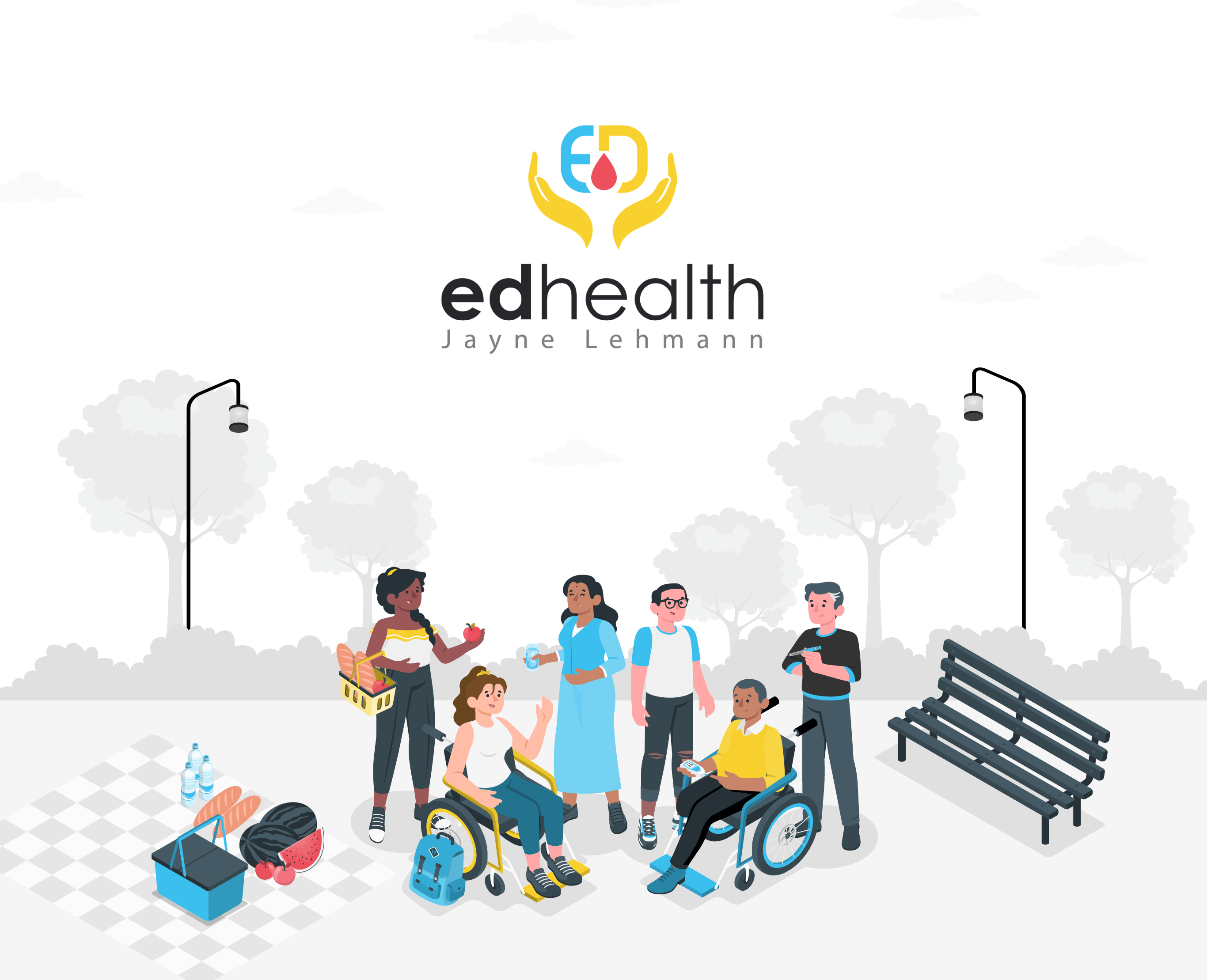Background
Too often people with a disability don’t get the same standard of care for their diabetes as they would if they didn’t have their disability.
The National Disability Insurance Scheme (NDIS) funds capacity building strategies and resources to enable people with a disability to get the support required to care for their diabetes, like they would if they did not have their disability.
The D4D strategy
EdHealth has a suite of services available, that they customise and combine to create a Diabetes 4 Disability (D4D) solution. The aim is to build the capacity of NDIS participants, and their circle of support, to improve the ability of the person to have their diabetes care attended. We identify barriers their disability creates and design a solution that enables them to increase their capacity to do their diabetes self-care for better health. In other words, we focus on the disability side of a person’s diabetes care to enable the NDIS participant to put the diabetes care recommended by their health services into action.
EdHealth Australia’s Credentialled Diabetes Educators choose and customise D4D services/resources, from our suite of twelve, to maximise the capacity of their circle of support to actively involve the person in their diabetes care. These services are layered around the individual, for a comprehensive approach to their support – known as the D4D solution.
Services are individualised and suit people with:
- acquired brain injury
- autism
- cognitive disability
- intellectual disability
- psycho-social disability.
A focus on the disability side of diabetes care opens up a person’s capacity to better look after their diabetes. When the right support is in place for the person and their circle of support, improved diabetes care becomes a reality. This is different to the services provided in hospital and primary care-based diabetes education services, and why we are a NDIS Registered Provider.
EdHealth’s Credentialled Diabetes Educators work with the person and their team to make sure the supports are introduced and understood. Our aim is to improve their quality of life and health outcomes, while better supporting those providing their support.
Click! to find out why we recommend a support worker model of diabetes support for most NDIS participants.
Click! to find out why support workers can legally give insulin
Diabetes 4 Disability (D4D) Services
1. D4D Online Training
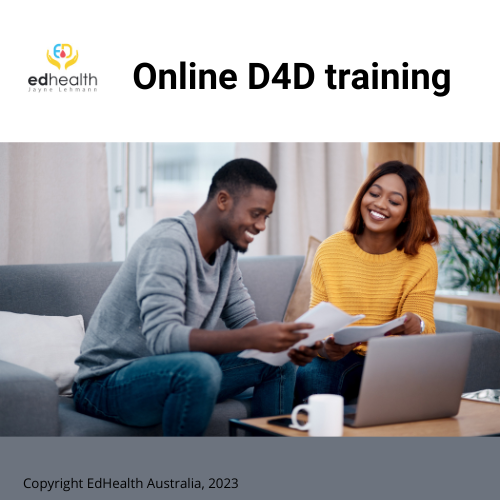
The D4D online training provides support workers with a solid understanding of diabetes. Modules are combined to address the knowledge and skills support workers need to help their client with their unique version of diabetes. NDIS compliant, this course has been written for the specific needs of support workers working with NDIS participants. A more comprehensive and effective option to set your support workers up to provide quality and safe diabetes care.
Click! for more information about the D4D Modules, Online Skill Sessions and Online Skill Check we use to customise the training for your support workers.
Click! to find out about trouble shooting and support provided by EdHealth
Click! to go to D4D Course Q&A.
2. Assessment

An in person or online assessment, conducted by an EdHealth diabetes educator, delivers customized solutions for better diabetes care for people with a disability.
Click! to find out more.
3. Report
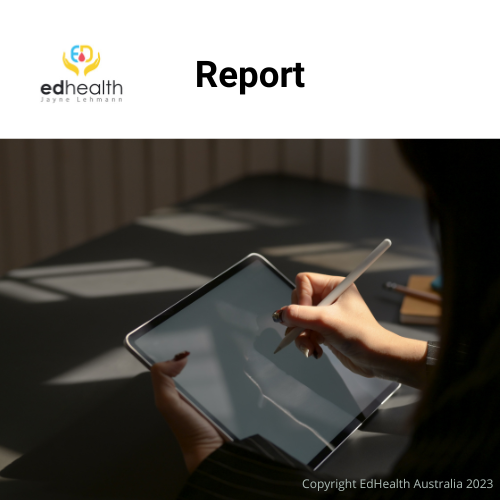
EdHealth’s D4D report service can be used to provide an objective and comprehensive review of a NDIS participant’s diabetes care and support needs. After an assessment, the Credentialled Diabetes Educator/diabetes educator writes a report, focused on the support a NDIS participant and their circle of support will require, to care for their diabetes, like they would if they did not have their disability.
Click! to find out more.
4. Diabetes Management Plan
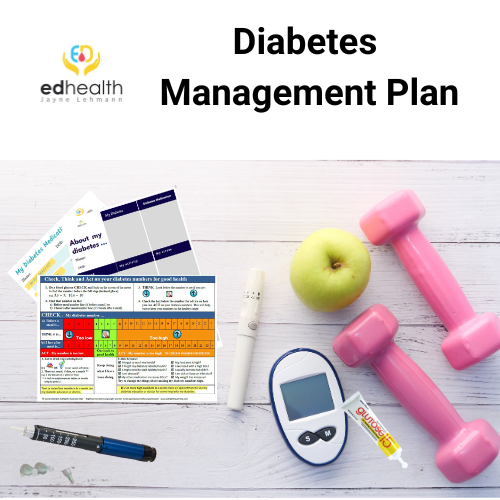
NDIS participants require a written Diabetes Management Plan (DMP) when they have support workers helping them with their diabetes care. EdHealth creates DMPs to address the specific needs of the NDIS participant, their disability and specific diabetes care needs.
Click! to find out more.
5. Diabetes Management Plan (DMP) Quiz and Answer Guide
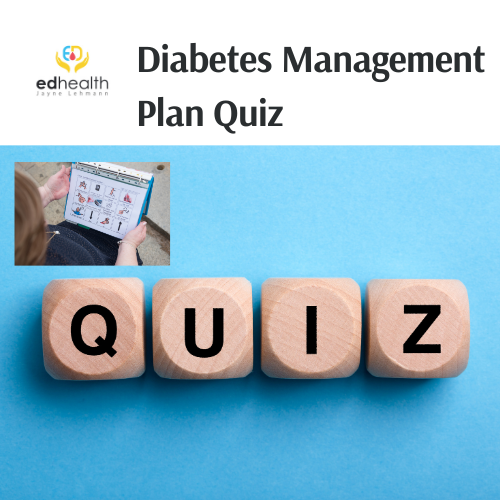
A ten to thirteen question quiz can be prepared for support workers to complete after they have read through the DMP. The aim of this strategy is for them to understand and be able to show they have a solid understanding of the top ten areas of their client’s diabetes care. This quality and safety strategy supports a timely understanding of the DMP by a person’s support workers.
Click! to find out more.
6. Diabetes Management Plan presentation
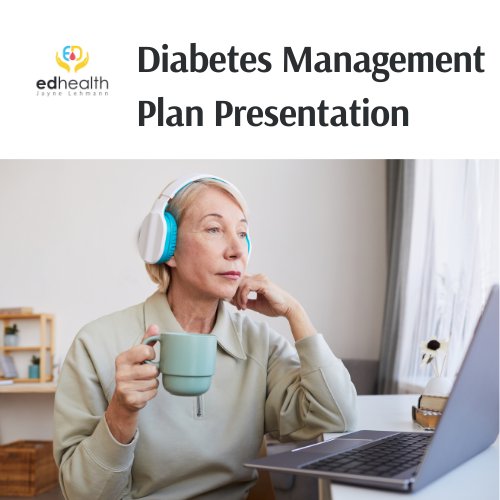
Providing the support workers with a presentation on the use of the Diabetes Management Plan (DMP) is recommended when an EdHealth DMP is prepared for a NDIS participant. This service will improve how the DMP is used by their support workers and complements the training provided in the D4D online training.
Click! to find out more.
7. Diabetes Management Plan Audio Recording
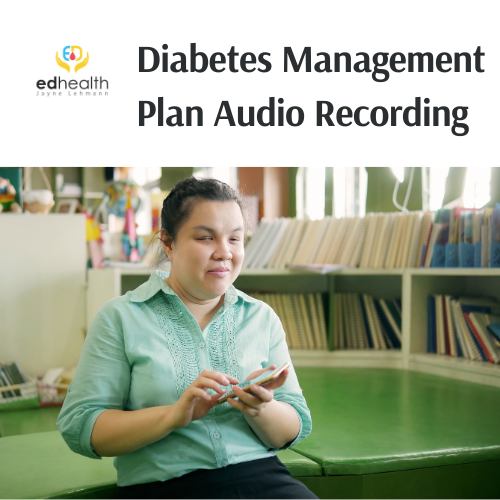
Audio recording of the Diabetes Management Plan increases accessibility of information for some clients and support workers. For example, people with:
- vision impairment
- where repetitive teaching/learning scripts are required
- support workers working with a client with English as a second language who are more confident in their first language.
Click! to find out more.
8. Low literacy Resources
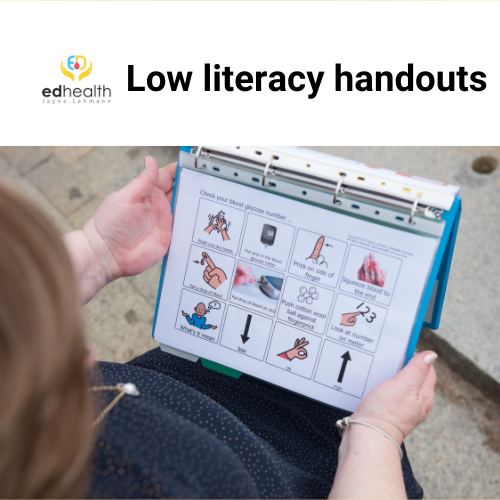
Low literacy, or picture resources, are designed by EdHealth CDEs for people with low literacy and/or low health literacy to support them with their diabetes care. These resources are designed to address a particular need and are highly individualised. Created using Widgit Online, the resources are very clear and effective at supporting a person to be more involved in their diabetes care. Some are designed to be interactive, where a person can add stickers to ‘count’ how often they do the task.
Click! to find out more.
9. Low Literacy Education Sessions
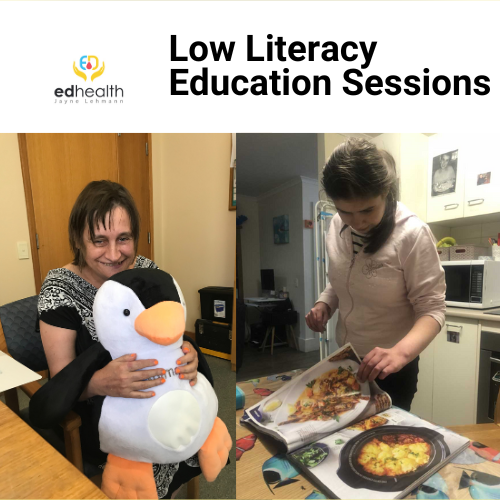
EdHealth’s team of Credentialled Diabetes Educators/diabetes educators have developed their skills in providing low literacy education sessions. These sessions are not readily available in mainstream diabetes education services, and are designed to address the needs of people with a significant cognitive disability.
Options include:
- Play therapy to de-sensitise/prepare a person who has refused to have an injectable diabetes treatment due to their fear of needles.
- Review and delivery of low literacy education if unable to tolerate mainstream health services.
- Education to use diabetes support equipment in their own home
- Introduction of a specific low literacy support service to demonstrate to the support workers.
Click! to find out more.
10. D4D Manual and Resources
Diabetes Care & Support of People with Intellectual Disability or Acquired Brain Injury Manual and Resources (158 pages, Colour pdf.)
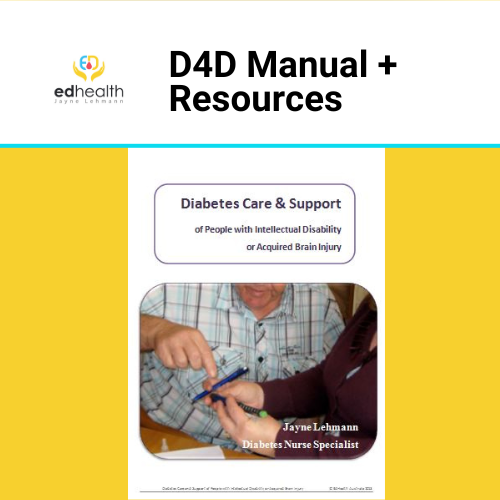
Disability organisations are provided with very little information on which to base their organisation’s policies, processes and support strategies for a quality approach to supporting people with diabetes. The Diabetes Care & Support of People with Intellectual Disability or Acquired Brain Injury Manual provides information about the recommended delivery of support services to people with a cognitive disability.
Written by Jayne Lehmann, Director of EdHealth Australia, a Registered Nurse, Credentialled Diabetes Educator with lived experience from caring for her daughter Sarah, who had an intellectual disability. Jayne’s contact with disability organisations and support workers who provided support for Sarah’s care at home, sleepovers at respite services, day options and later accommodation and community activities, informed the development of this Manual.
This information has been put together to provide a starting point to the development of diabetes support quality and safety systems and also to provide additional information within the house of a person with a disability and diabetes. The support workers can use the information in their support of the individual.
The manual includes resources designed to support quality diabetes care by disability organisations and their support or care workers. This resource will also be of interest to any health professional working with someone with a disability and diabetes. For example, Credentialled Diabetes Educators, diabetes educators, primary care nurses in general practice, Registered and Enrolled Nurses and allied health professionals.
The information is written in an easy to read style with a range of icons used throughout the manual, making it easy to use. Diabetes care tips, case studies and resources designed to be used with people with an intellectual disability to make it easy to use the information to provide high quality diabetes care to clients with an intellectual disability or acquired brain injury.
Click! to find out more about the Manual and Resources
To buy: Click! then scroll down to purchase in our online shop
Contact Us

Talk to the EdHealth team about a customised D4D Solution for your client …
Click! to leave your details. We will get back to you.
Click! and complete the form to tell us what you would like to know more about linked with the D4D services. Email it to us and one of the EdHealth Team will be back in contact with you!
Email: admin1@edhealth.com.au Phone: 0412 102 048.

